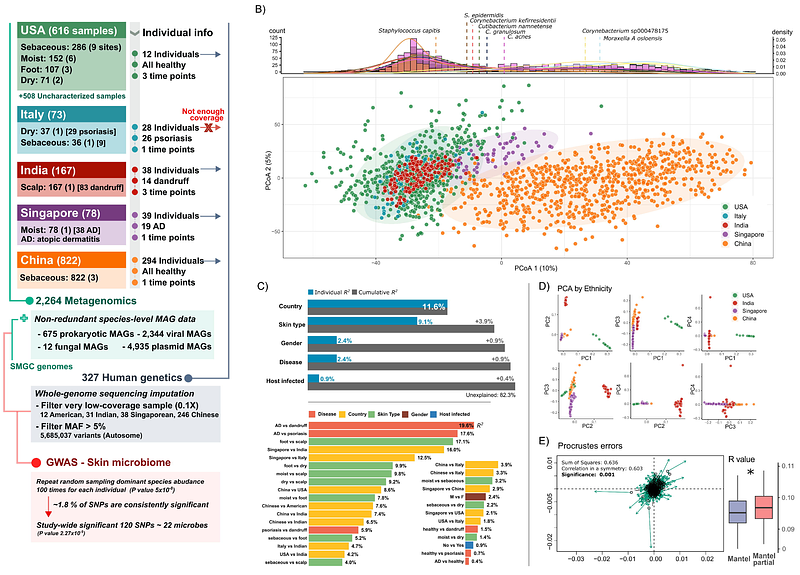Geographic Variation and Host Genetics Shape the Human Skin Microbiome

Geographic Variation and Host Genetics Shape the Human Skin Microbiome
Seong, H. J.; Quince, C.
AbstractThe human skin microbiome is shaped by a complex interplay of host physiology, environmental exposure, and microbial interactions across domains of life. However, the relative contributions of host genetics and geography remain unresolved. Here, we present the first application of ultra-low coverage human genome imputation from skin metagenomic data, analysing 1,756 samples from multiple skin types and timepoints, with matched genotypes from 327 individuals across five countries. We also generate expanded Skin Microbial Genome Collection (eSMGC), comprising 675 prokaryotic, 12 fungal, 2,344 viral, and 4,935 plasmid genomes, correcting extensive false positives in existing references. Intercountry comparisons reveal that geography explains more microbiome variation than skin type, and that host genetics contributes previously uncharacterized structure--exemplified by distinct profiles in Chinese individuals. Genome-wide association analysis identifies 107 SNPs linked to 22 microbial taxa, including phages and plasmids, implicating host genes in skin structure, immunity, and lipid metabolism. Cutibacterium acnes and its phages exhibit geographic divergence and phage-host co-adaptation. Finally, host-infecting viruses, particularly papillomaviruses, are associated with elevated microbial diversity and immune-modulatory functions. These findings establish host genetics as a determinant of skin microbiome ecology and highlight the value of multi-domain, geographically diverse analyses.